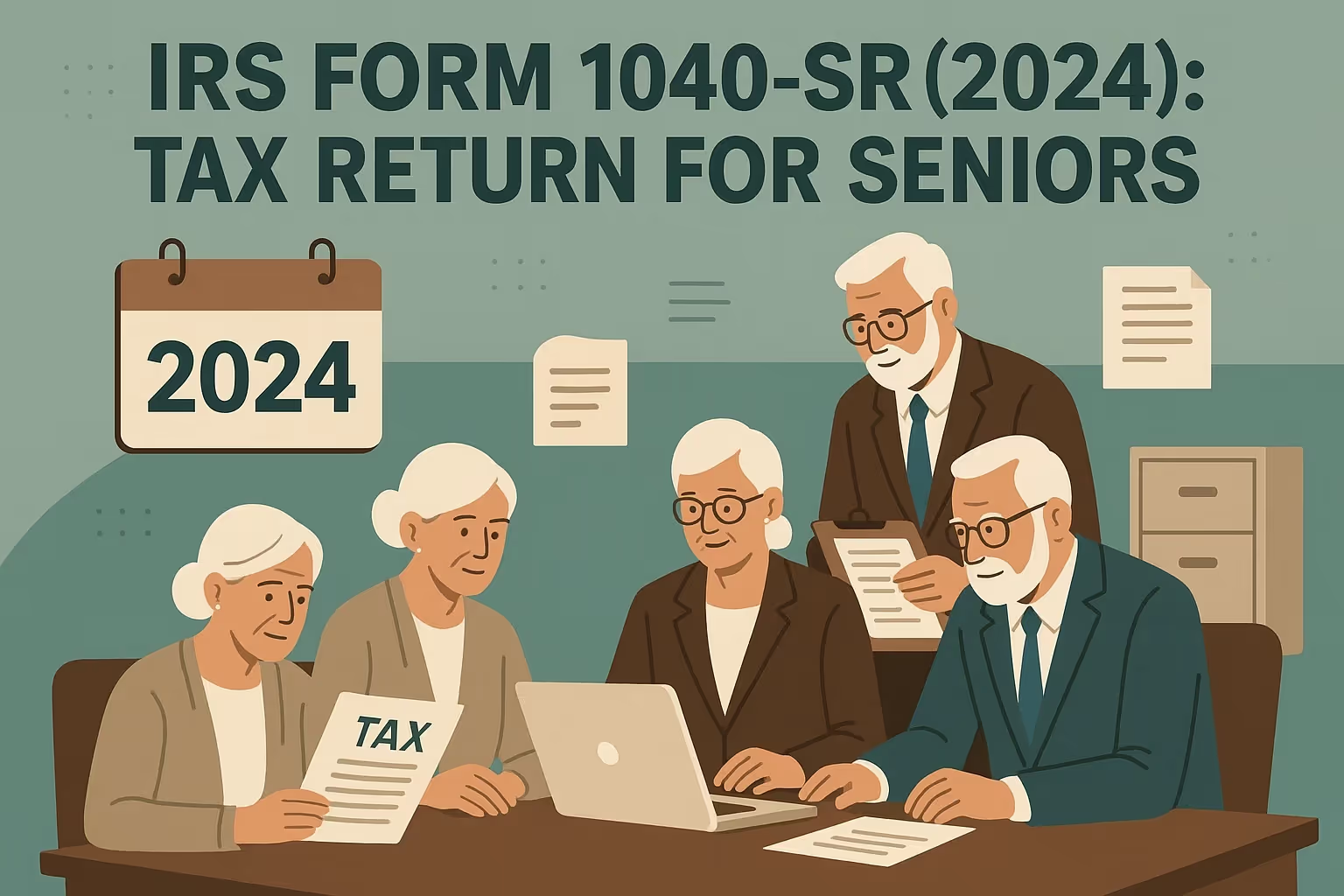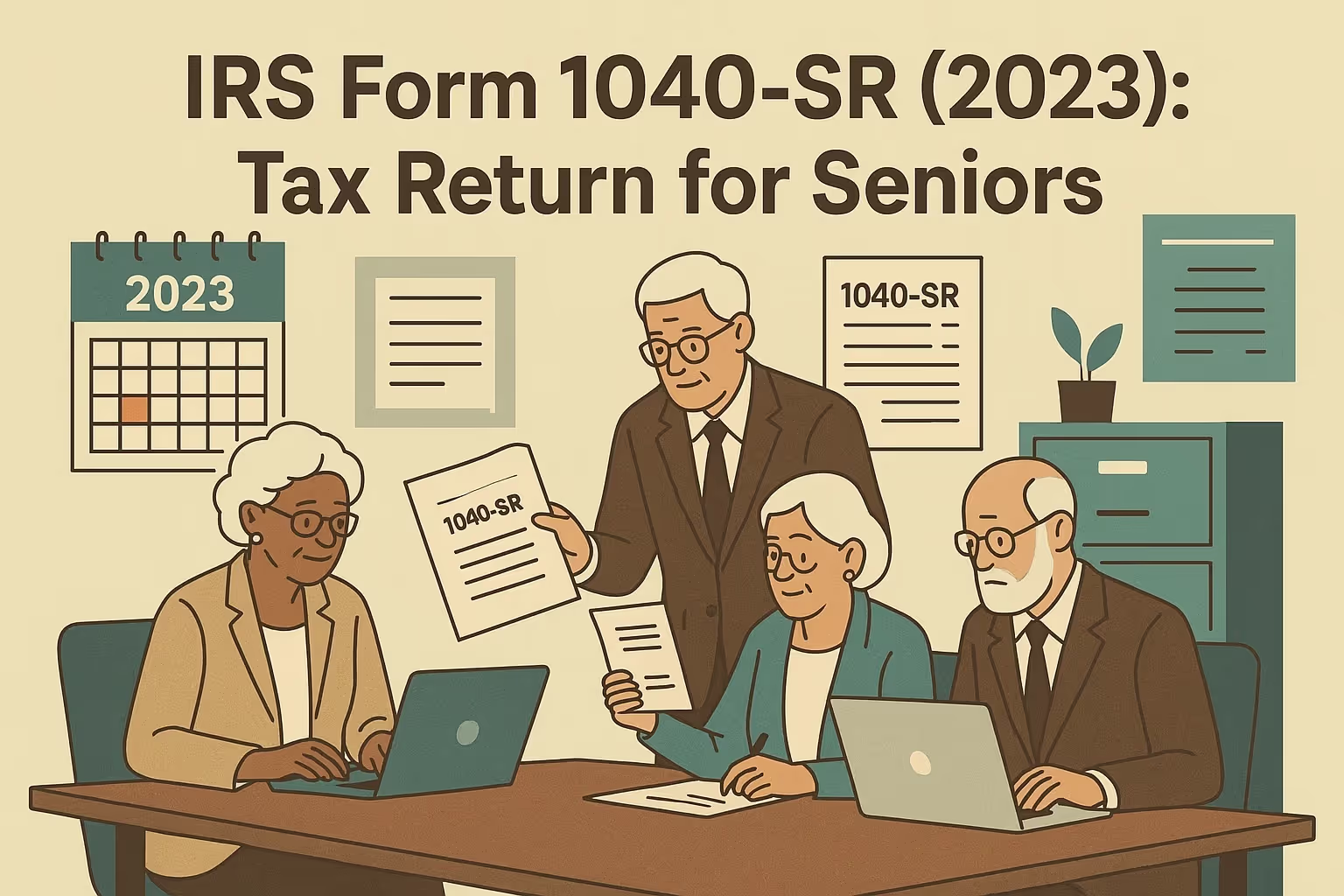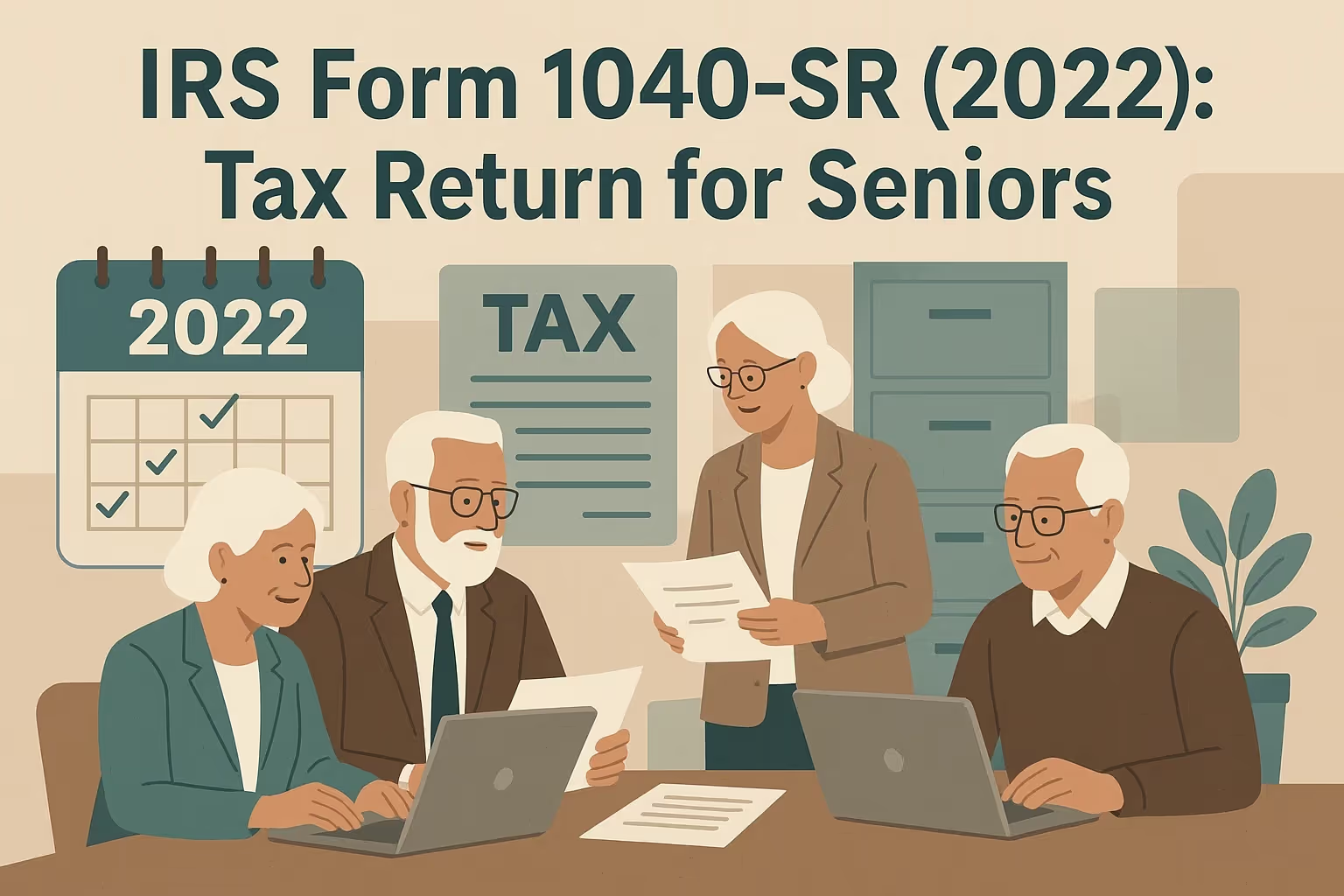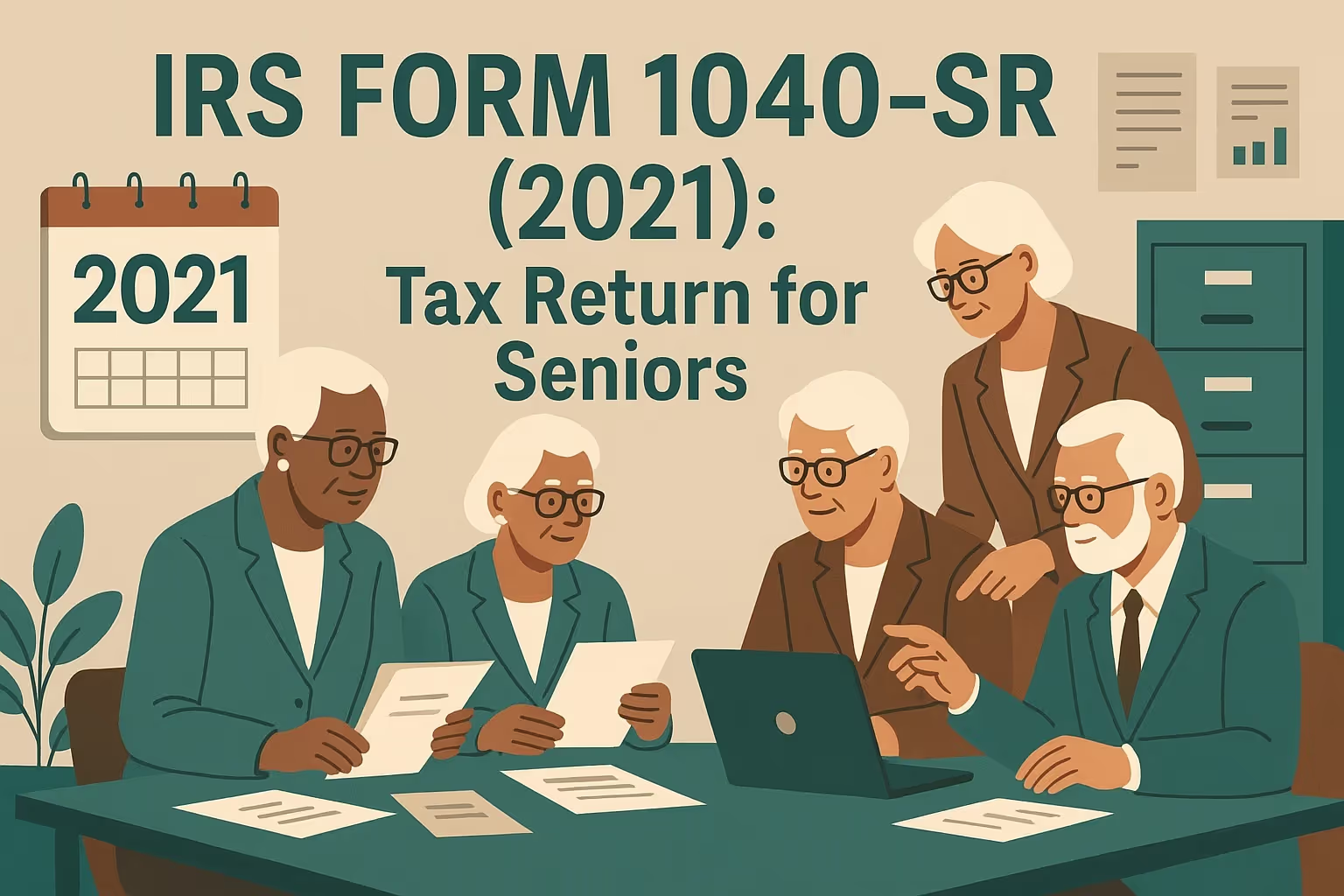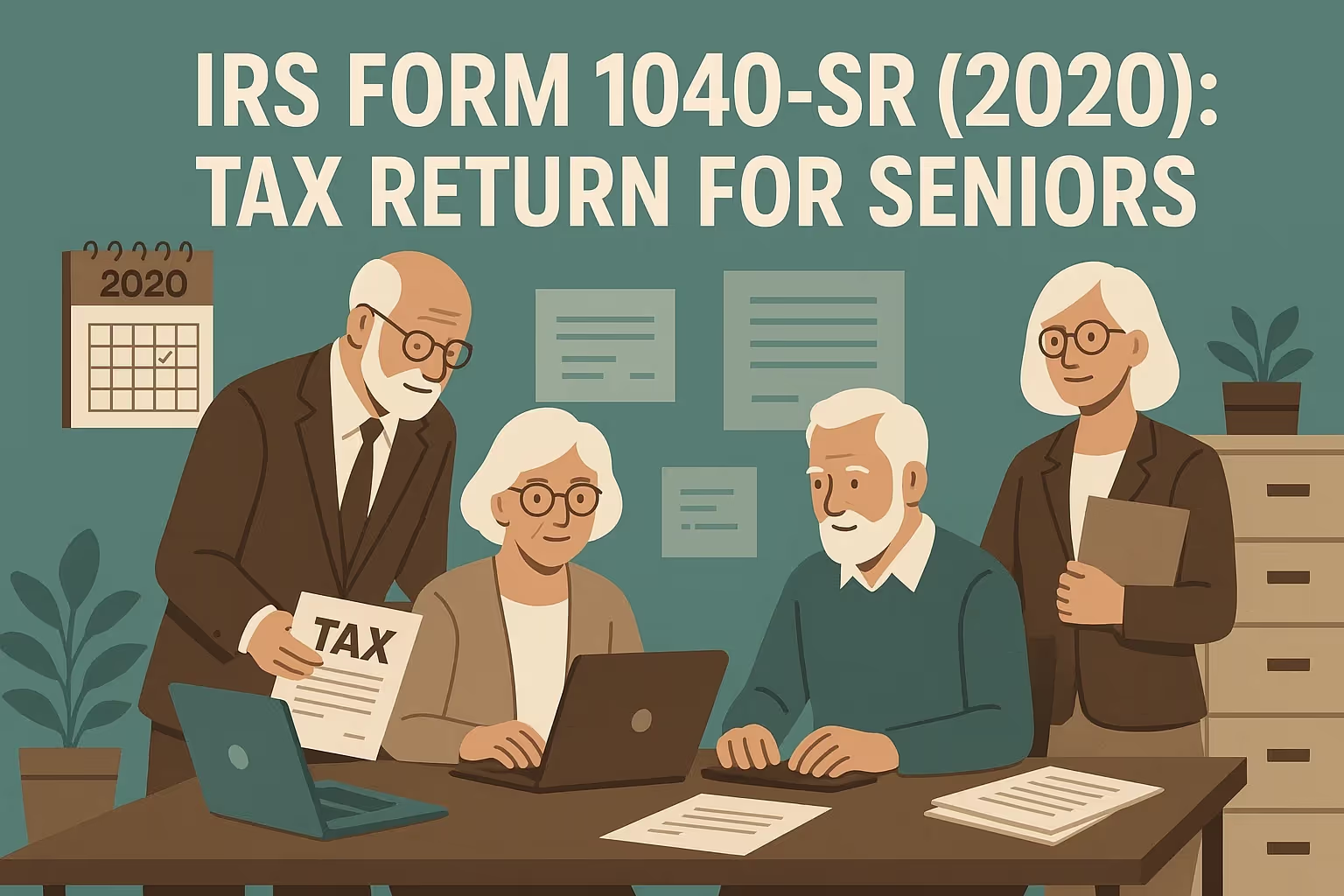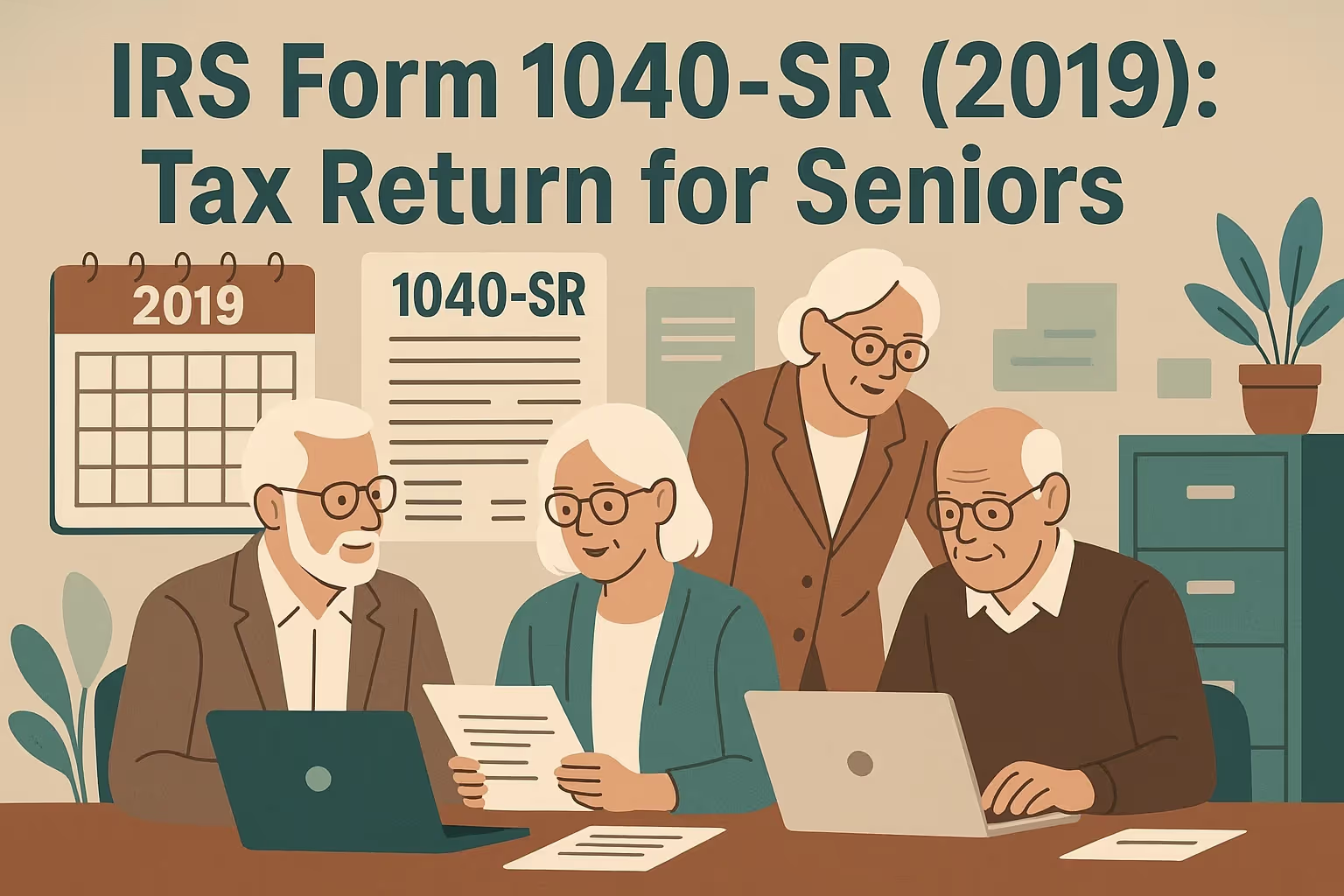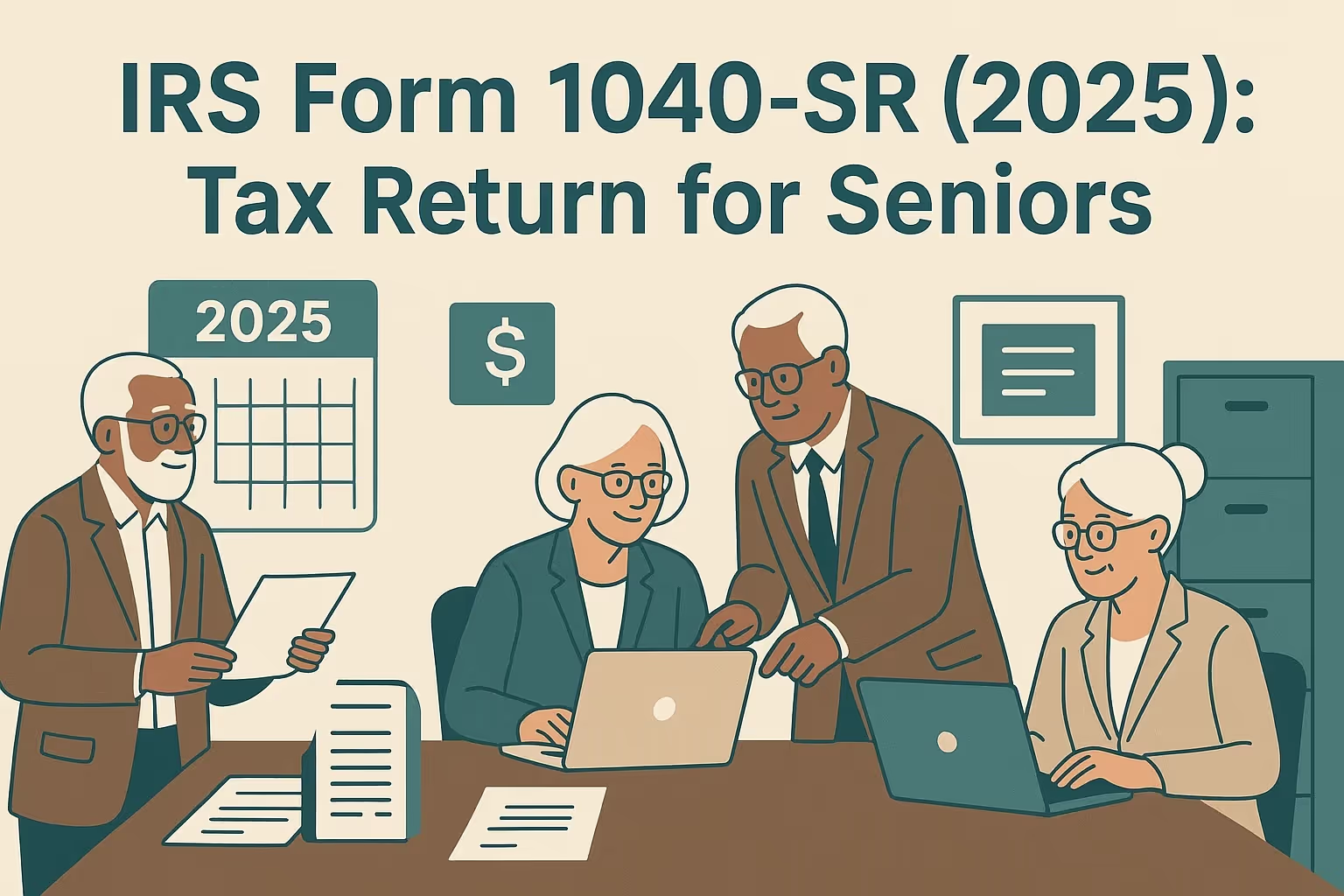
What IRS Form 1040-SR (2025) Is For
IRS Form 1040-SR (2025) is an optional tax return designed for seniors age 65 or older at the end of the tax year. It works the same as Form 1040 but includes larger print and a simplified layout for easier reading. Seniors can file either form, and both are valid according to the IRS.
This form allows seniors to report all income, including wages, pensions, and Social Security benefits. When preparing your return, ensure that you enter accurate information for all income sources and deductions to prevent issues or delays in the processing of your return.
For a broader explanation of how the senior return works overall, you can review our guide to the Form 1040-SR U.S. Tax Return for Seniors.
When You'd Use Form 1040-SR for 2025 (Late or Amended Filing)
You would file Form 1040-SR for 2025 late if you missed the April 15, 2026, deadline, received an IRS notice about unfiled returns, or found a refund opportunity still open within the three-year window. Refund claims for 2025 must be submitted by April 15, 2029.
If you owe taxes, penalties, and interest accrue from the original due date until payment is made or a payment plan is approved. If you are due a refund, filing late will not cause a penalty. If you want to compare the senior version with the regular return, our Form 1040 Individual Income Tax Return guide explains how the standard form works and who typically uses it.
Key Rules Specific to 2025
- Standard deductions: For the 2025 tax year, single filers can claim $15,000, while those married filing jointly can claim $30,000.
- Additional senior amounts: Seniors age 65 or older can add $2,000 if single, or $1,600 per spouse if married.
- Enhanced deduction: Under the One Big Beautiful Bill Act (2025), an additional $6,000 deduction is available for each taxpayer age 65+ through 2028.
- Refund claim statute: Refund claims for 2025 must be filed by April 15, 2029, after which refunds are no longer available.
- IRS updates: Tax figures may change annually, so it’s essential to verify updated deduction amounts and thresholds on IRS.gov before filing your return.
If you also have older unfiled federal returns, our guide on unfiled federal income tax returns from 2010 to 2024 explains how the IRS handles multiple years and what to expect when catching up.
Step-by-Step (High Level)
- Request transcripts: Use IRS Get Transcript Online, identified by the locked padlock icon, to view your tax return transcript or income transcript securely.
- Select transcript type: Choose “Tax Return Transcript” for your original filing or “Account Transcript” for balances, payments, and adjustments.
- Request by mail: If you cannot access transcripts online, submit Form 4506-T by mail to the address listed for your state.
- Complete Form 1040-SR: Use the official 2025 version and ensure all required schedules are attached.
- Attach schedules: Include Schedules 1, 2, and 3 if applicable to report additional income, credits, or deductions.
- File your return: File electronically through an approved provider or mail your completed return to the correct IRS address for 2025.
- Keep a copy: Retain a copy of your filed return, transcripts, and proof of the date submitted for future reference.
If you’re unsure which schedules or attachments apply to your situation, visit our IRS Form Help Center for clear explanations of commonly required IRS forms.
Common Mistakes and How to Avoid Them
- Incorrect form year: Use the correct 2025 form instead of a prior year’s version to avoid delays.
- Missed deduction: Include the new $6,000 enhanced senior deduction so you do not reduce your refund.
- Unreported income: Match your return to your IRS transcript to ensure you report all income.
- Incorrect mailing address: Use the current-year IRS mailing address to prevent delays.
- Unsigned return: Sign all required sections so your return is valid.
- Self-calculated penalties: Leave penalties and interest blank so the IRS can compute them.
What Happens After You File
The IRS generally processes late 2025 returns within six to twelve weeks, although this timeframe may be extended during peak seasons. After your return is received, you may receive a notice confirming acceptance or requesting additional information.
If you owe taxes, you can apply for a payment plan or loan using Form 9465. The IRS offers monthly installment agreements that can extend up to 72 months. If you expect a refund, it will usually be issued within the standard processing timeframe once your return is accepted.
If you cannot pay your full balance, our guide to IRS payment plans explains how installment agreements work and what monthly options may look like for senior taxpayers.
FAQs
Can I still use Form 1040-SR if I'm filing more than a year after the due date?
Yes, you can file Form 1040-SR for a prior year as long as you were age 65 or older by December 31 of the year following the tax year for which you are filing. The form remains valid regardless of when it is submitted, and both Form 1040 and 1040-SR calculate taxes the same way.
Will I owe penalties for filing my 2025 return late?
If you owe taxes, the IRS applies a failure-to-file penalty of 5% per month, up to 25%, and a failure-to-pay penalty of 0.5% per month. However, if you are due a refund, no late filing penalties apply.
How can I obtain my 2025 tax documents if I have lost them?
You can access missing tax documents through IRS Get Transcript Online, which displays a locked padlock icon for secure access. Alternatively, request copies by mail using Form 4506-T. These transcripts include income data from W-2s, 1099s, and other forms submitted to the IRS.
Do I need to file a state tax return if I file my federal tax return late?
In most cases, yes, you do. Filing a late or amended federal return usually means you must also file a state tax return. Check your state tax agency’s website for deadlines, contact information, and mailing addresses.
What if I can’t pay the full amount I owe with my 2025 return?
You should still file your return to minimize penalties. Then apply for an installment agreement or learn about short-term payment extensions. The IRS provides free online access to set up payment plans for qualifying taxpayers.
What if there are issues after I file?
If the IRS identifies errors or missing information, you’ll receive a letter or online prompt explaining what to fix. Always respond promptly. You can find answers online or contact the IRS by phone if your case remains unresolved.

















